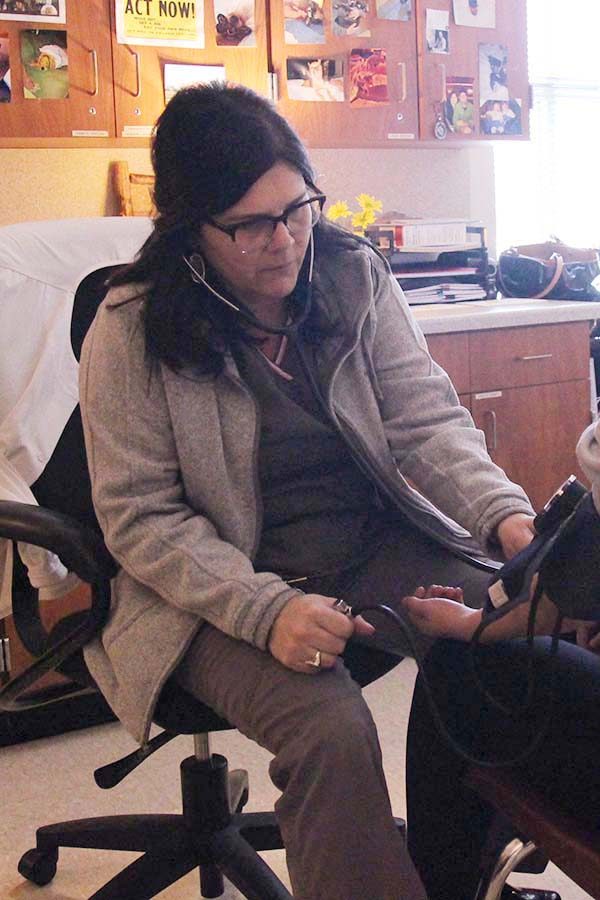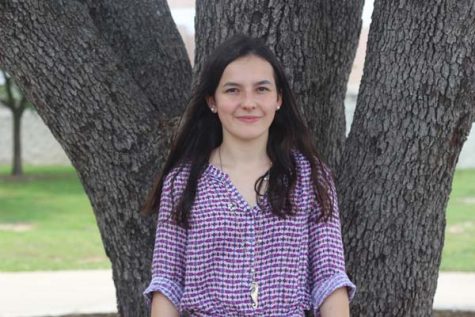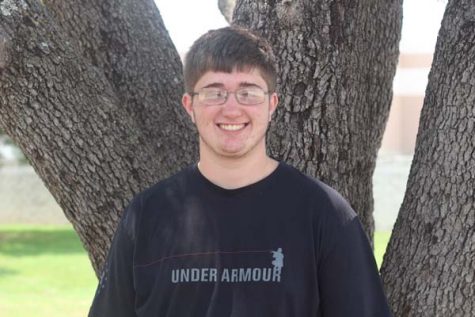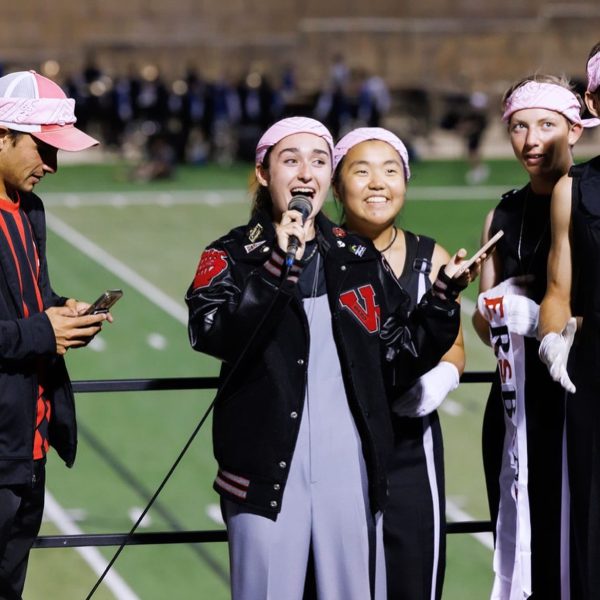Nurse Burrington Cares for Campus
February 16, 2017
Her door is always open. She’s mom to 2,400 students and 300 staff members and has experience with life and death scenarios.
Aside from familiarizing herself with the medical history of each student and ensuring that all the immunization records are compliant, school nurse Kristy Burrington is trained to make pertinent, split-second decisions in times of a medical crisis.
“A lot of what I do on a daily basis is nothing more than what your mom would do for you,” Burrington said. “But there’s also a lot of what I do that is not regular but does come up. You need a nurse that is qualified to take care of those things.”
In the last nine years, Burrington has had to call emergency medical services 30 times. On a daily basis, she assists 30-40 students, aside from tracking the health of the 10 diabetic students on campus.
“I consider myself a triage nurse,” Burrington said. “Meaning if you come in to see me, it is my job to determine if I can help you at school, make you feel better and give you medication, or if you are too sick to be here, to send you home.”
District policies state that if a student displays a fever of 103 degrees or more, or is vomiting profusely, the nurse is required to send the afflicted student home.
“There are also things that walk in here that might look like something to the naked eye, but I’ve been trained to ask certain questions and look at something a little bit deeper than just face value,” she said. “If a student with a history of seizures has a seizure, it looks scary, and you look at it and you go ‘oh my gosh, medical emergency,’ but truthfully, for someone with a history of seizures, that is not necessarily considered a medical emergency.”
At the beginning of each school year, teachers go through mandatory seizure, anaphylaxis, and diabetic training to identify and, if needed, provide medical attention to a student that expresses disconcerting symptoms. Whenever Burrington is not present during the school day, substitute nurses take on this role.
Burrington has worked on campus a total of nine years and has seen two classes come and go.
“I am fortunate that I have been here as long as I have and I know the teachers, I know the students,” Burrington said. “There are hundreds of students that I’ll never see, but the ones that have health problems I get to know them over the four years. It’s beneficial in that I am able to familiarize because I have been here as long as I have.”
Before becoming a school nurse, Burrington attended college to complete a business major, but her “wonderful” experience with the nurse that delivered her first child made her reconsider her career interest.
“My whole family always thought, ‘You are going to be a doctor someday,’” she said. “My grandpa used to take me fishing, and I would gut the fish and my two sisters would go ‘Ahhh’ and I loved it, and I was fascinated by it. I was not grossed out or scared about anything.”
Burrington went once more to school, this time to obtain a degree in nursing, and found a position as a labor and delivery nurse.
“I never thought of doing anything but labor and delivery, but somebody from here called me and said ‘We need a school nurse. Our school nurse quit. Are you interested?” Burrington said. “It was a chance I took to try it, and I wasn’t sure what it would be like, but it has been incredible.”
Over the years, Burrington said she discovered the beauty of being a school nurse and now cannot picture herself anywhere else.
“I think that we are fortunate because we work in a district and state that budgets to have nurses on campus,” she said. “I don’t think that there’s really anything that could happen here that we would not be prepared to deal with.”















